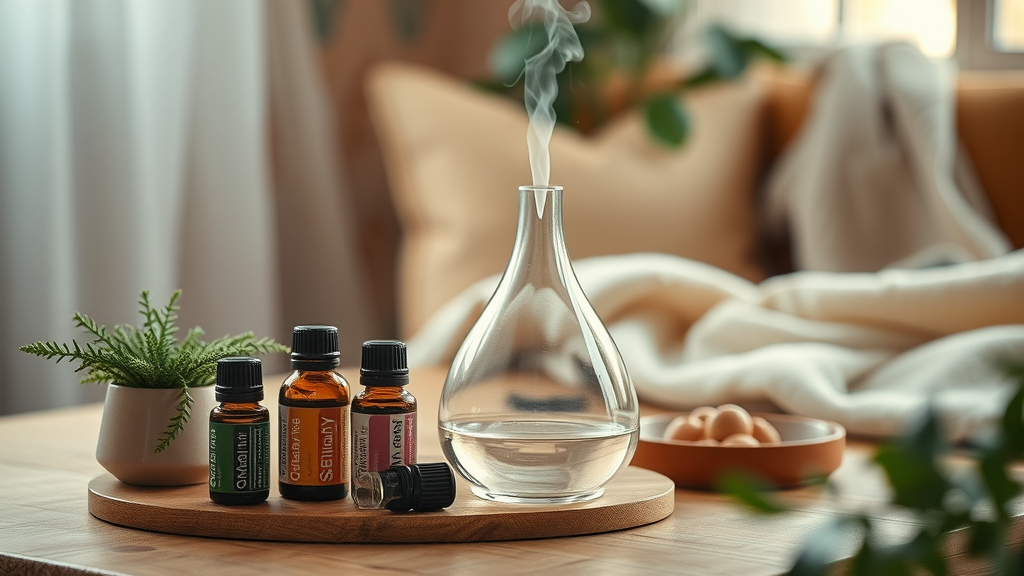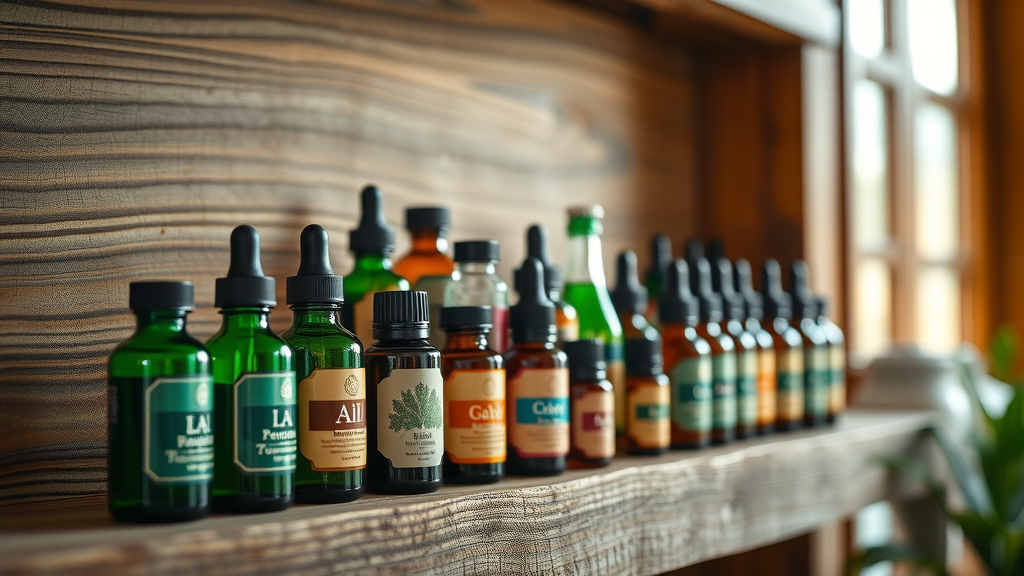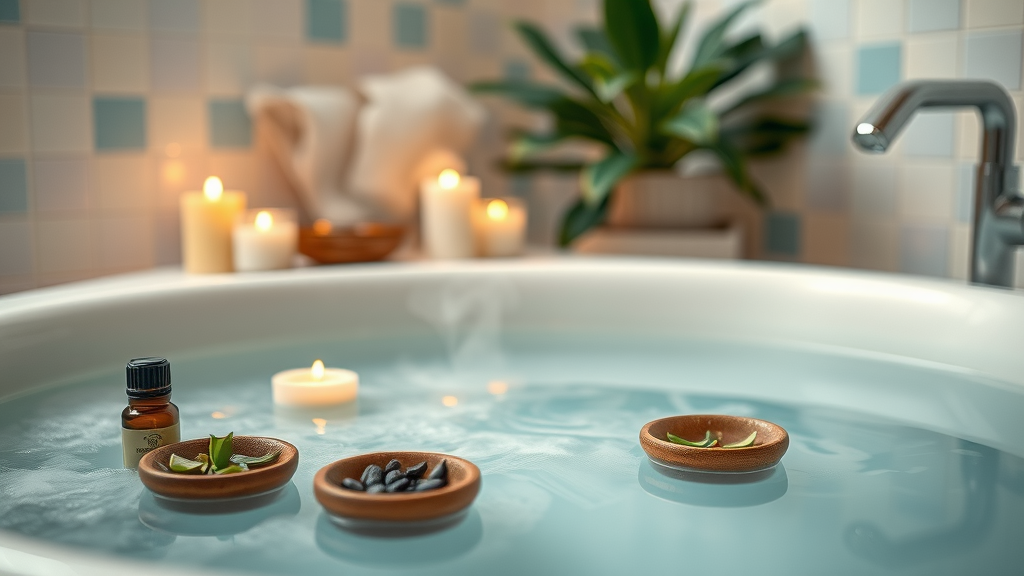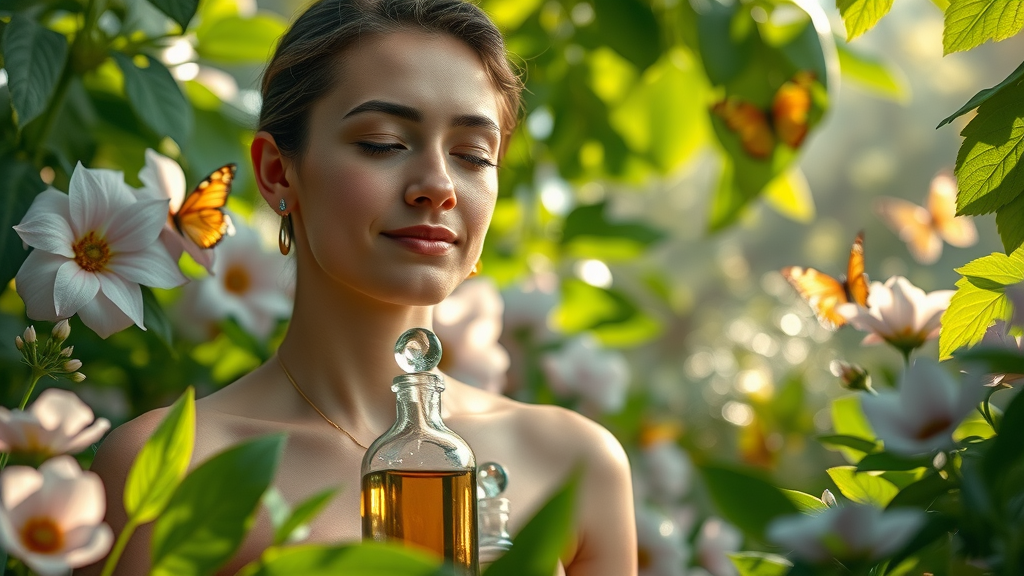In our increasingly stressful lives, the soothing power of aromatherapy offers a breath of fresh air. Imagine transforming your home into a sanctuary of calm with just a few drops of essential oils. In this installment of our Complementary Health Series, we’ll dive into the fascinating world of aromatherapy—unpacking its rich history, scientific benefits, and practical applications. Whether you're seeking stress relief, improved mood, or a natural way to enhance your wellness routine, mastering aromatherapy is a journey worth taking. Let’s explore together!
Introduction to Aromatherapy
The History of Aromatherapy
Aromatherapy has been used for thousands of years across various cultures for its therapeutic benefits. Ancient Egyptians, for instance, utilized aromatic plant and essential oils in their rituals and mummification processes. This practice was not only about fragrance but was deeply rooted in a holistic approach to health care, known as alternative or complementary medicine. Over the years, aromatherapy evolved, with French perfumer and chemist René-Maurice Gattefossé coining the term in the 20th century. His research highlighted the potential of lavender oil in healing burns, paving the way for modern aromatherapy.
Scientific Benefits of Aromatherapy
The benefits of aromatherapy are supported by scientific research. Essential oils like lavender and tea tree oil are known to have a positive impact on the nervous system, helping to manage stress and improve sleep. Inhaling essential oils stimulates the limbic system, the brain's control center for emotions, which can enhance mood and promote relaxation. Studies published in scientific journals have also suggested that certain essential oils can support the immune system and provide symptom relief for chronic conditions.
Practical Applications of Aromatherapy
Aromatherapy is versatile, offering numerous applications. It can be integrated into daily life through various methods such as diffusing aromatic oils, topical application, and even incorporation into body lotion or massage oil. These practices not only smell good but also promote a state of equilibrium in the body and spirit. Aromatherapy oil blends are often used in spa treatments, offering a holistic healing experience. However, it is important to note that oils directly applied to the skin should be diluted with a carrier oil to prevent adverse effects like chemical burns.

What You'll Learn in Aromatherapy
Understanding essential oils - Learn the different types of essential oils and their benefits.
Methods of application - Explore various ways to use aromatherapy, including diffusing and topical application.
Health benefits and precautions - Discover the advantages of aromatherapy for health care and important safety tips.
Essential Oils: The Heart of Aromatherapy
Popular Essential Oils and Their Uses
Essential oils are the cornerstone of aromatherapy, each offering unique benefits. Popular essential oils include lavender oil, known for its calming properties, tea tree oil for its antiseptic qualities, and sweet orange for its uplifting aroma. These oils can be used individually or in a therapeutic grade oil blend to enhance their effects. It's crucial to ensure that these oils are of high quality to maximize their benefits.

How to Choose Quality Essential Oils
When selecting essential oils, it's important to choose products that are pure and therapeutic grade. Look for oils that are free from synthetic additives and labeled with their botanical name and plant source. Avoid low quality oils that might be diluted or mixed with fragrance oils, as they may not provide the desired therapeutic benefits.
Safe Practices for Essential Oil Use
Safe use of essential oils is paramount. Always perform a patch test before applying oils directly to the skin to check for allergic reactions or irritation. It is advisable to dilute essential oils with a carrier oil like coconut oil before topical application. Consult a health care provider if you have any medical conditions or are pregnant or nursing, as some oils can have adverse effects.
Aromatherapy Techniques and Methods
Aromatherapy Diffusers
Diffusers are a popular way to enjoy the benefits of essential oils. These devices disperse essential oils into the air, allowing you to inhale their therapeutic aroma. There are various types of diffusers, including ultrasonic, nebulizing, and heat diffusers, each offering a different method of dispersal. Using a diffuser wit can transform your space into a tranquil environment, enhancing your mood and well-being.
Topical Application and Massage
Topical application involves applying essential oils directly to the skin, often in a diluted form with a carrier oil. This method is commonly used in massage therapy, where oils like lavender and massage oil blends are used to relax the muscles and calm the mind. It's important to apply essential oils correctly to avoid skin irritation.
Aromatic Baths and Inhalation
Inhaling essential oils through aromatic baths is another effective method. Adding a few drops of essential oil to a bubble bath can create a relaxing and therapeutic experience. Inhalation methods, such as using shower steamers, allow the aromatic compounds to enter the respiratory system, promoting relaxation and mood improvement.

Aromatherapy for Emotional and Physical Wellness
Stress and Anxiety Relief
Aromatherapy is renowned for its ability to relieve stress and anxiety. Essential oils such as lavender and chamomile are known to calm the nervous system and reduce anxiety levels. Many people claim these oils help manage stress effectively, returning the body to a state of calm and balance.
Aromatherapy for Sleep Improvement
For those struggling with sleep, aromatherapy can promote improved sleep quality. Lavender oil, in particular, is effective in soothing the mind and preparing the body for restful sleep. Aromatherapy oils can be used in a diffuser or applied to pillows to create a calming bedtime routine.
Boosting Mood and Energy Levels
Aromatherapy can also help improve your mood and increase energy levels. Citrus oils like sweet orange and lemon are known for their uplifting and energizing properties. These oils can stimulate the brain's limbic system, enhancing your mood and providing a natural boost of energy.
People Also Ask: Aromatherapy Insights
What does an aromatherapist do?
An aromatherapist is a professional trained in the use of essential oils for therapeutic purposes. They create personalized oil blends and provide guidance on safe and effective use to enhance health and wellness.
What are the three types of aromatherapy?
The three main types of aromatherapy are cosmetic, massage, and olfactory. Each type focuses on different applications and benefits, from skin care to emotional well-being.
Who should not use aromatherapy?
While aromatherapy is generally safe, certain individuals should exercise caution. Pregnant or nursing women, people with asthma, and those with specific medical conditions should consult a healthcare provider before using essential oils.
Is aromatherapy good for anxiety?
Yes, aromatherapy is widely recognized for its anxiety-reducing effects. Essential oils like lavender and chamomile are particularly effective in promoting relaxation and reducing stress levels.
Expert Quotes on Aromatherapy
"Aromatherapy is not just a trend; it's a lifestyle choice that enhances well-being." – Renowned Aromatherapist
Common FAQs About Aromatherapy
How often should I use aromatherapy?
The frequency of aromatherapy use depends on individual needs and preferences. It can be used daily or as needed to address specific health concerns or enhance overall well-being.
Can children use essential oils?
Essential oils can be used for children but should be done with caution. Always dilute oils and consult a healthcare provider to ensure safe use for young children.
Are there any side effects?
While aromatherapy is generally safe, there can be side effects such as skin irritation or allergic reactions. It's important to perform a patch test and use oils as directed.
Key Takeaways on Aromatherapy
Aromatherapy is versatile and offers numerous health benefits.
Quality of essential oils is crucial for effectiveness.
Safe application methods enhance experience and prevent adverse effects.
Conclusion: Embrace Aromatherapy in Your Life
Integrating Aromatherapy Into Daily Routine
Incorporating aromatherapy into your daily routine can be simple and rewarding. Start by diffusing oils in your home or using them in personal care products like body lotion. Regular use can lead to a more balanced and calming lifestyle.
Benefits of Consistent Aromatherapy Practice
Consistent practice of aromatherapy can enhance overall well-being, improve mental clarity, and provide a natural way to manage stress. The bottom line is that aromatherapy offers a holistic approach to health care, promoting both emotional and physical wellness.

Explore More: Aromatherapy Resources and Products
Recommended Books and Guides
Explore books and guides that offer deeper insights into the world of aromatherapy. These resources can provide tips on selecting oils, creating blends, and understanding the therapeutic properties of different essential oils.
Where to Buy High-Quality Essential Oils
Finding high-quality essential oils is crucial for effective aromatherapy. Look for reputable brands that offer pure essential oils. Many online platforms offer free shipping, making it convenient to stock up on your favorite oils.
Online Aromatherapy Courses and Workshops
For those interested in expanding their knowledge, online courses and workshops provide valuable education on aromatherapy. These programs can teach you about different oil blends, the science behind aromatherapy, and safe practices.
 Add Row
Add Row  Add
Add 




Write A Comment